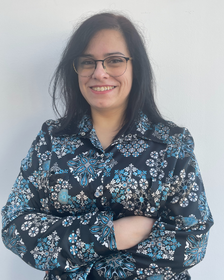Absorption, distribution, metabolism and excretion (ADME) are biological processes involving several organs (i.e. intestine, liver, kidneys) and determining the bioavailability of drugs. In particular, the absorption, mainly occurring at the intestinal level, is the first crucial step establishing the drug fraction which successfully enters the blood circulation. Human intestinal cell models are pivotal in elucidating various aspects of gastrointestinal biology and diseases, including drug absorption, host-pathogen interactions, inflammatory bowel diseases, and treatment effects. However, systematic and quantitative studies are quite limited due to a lack of reliable experimental models able to mimic human in vivo responses. Emphasizing the limitations of current in vitro models, the webinar introduces a novel approach integrating a human small intestinal model within a multi-compartmental organ-on-chip system to address these shortcomings. This approach aims to assess the absorption of nutrients and drugs, mimicking both the bloodstream environment and the intestinal lumen niche, assessing key factors such as mucin secretion, barrier function, and bacterial adhesion. Furthermore, the webinar discusses the implications of gut dysbiosis, highlighting its potential effects on other organs through the gut organ axis. Ultimately, the webinar aims to provide insights into how this innovative model can enhance Physiologically Based Pharmacokinetic studies and contribute to a deeper understanding of gut health.

ABOUT THE SPEAKERS
Dr. Elisabetta Palamà is a biotechnology researcher holding a Ph.D. in Translational Medicine. Her expertise centers on regenerative medicine, specifically the utilization of stem cells and extracellular vesicles for cartilage regeneration. Recent research efforts have focused on generating new therapeutic cell sources, derived from iPSCs, aimed at regenerating bone and cartilage tissues. During her postdoctoral research, Dr. Palamà also contributed to the development of innovative methods for tracking extracellular vesicles in vivo in animal models. Currently, at React4life, Dr. Palamà is involved in the validation of new 3D models within a fluid-dynamic environment for applications in oncology, pharmaceuticals, nutraceuticals, and cosmetics.

